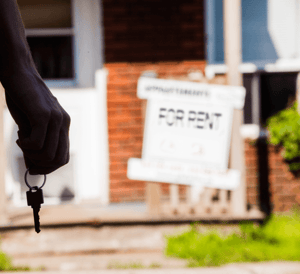If you're currently paying rent where you live, it's vital to know both what your rights and responsibilities are.
In this article, we'll focus solely on rental tenants, but it's important to remember that condominium residents in Alberta have additional obligations and responsibilities under the Condominium Property Act.
You may not own the building where you reside, but you have rights nonetheless, and knowing them can help you maintain a positive relationship with your landlord as well as to avoid being taken advantage of.
 The Residential Tenancies Act
The Residential Tenancies Act
Renters in Alberta are governed by the provincial statutes of the Residential Tenancies Act as well as Canadian law. This article will focus on the provincial requirements for renters in Alberta. It's important to understand that any failure to comply with tenancy regulations give landlords the right to evict you and/or seek damages in court against you.
A brief summary of the obligation of tenants includes:
- Paying the rent on time. This one is obvious, but it's essential to remember the rent must be paid in full and on time per the agreement you signed when you first began renting your residence.
- Keep the property in good order. In general, this refers to keeping the property clean, not inflicting significant damage to the property, not allowing the property to remain vacant or untended for long periods of time, and maintaining any common areas.
- Non-interference. Tenants are required to respect the rights of both the landlord as well as any fellow tenants in other units on the property.
- Abiding by the law. Tenants cannot use rental property or common areas of the property to participate in or assist with any illegal activities.
- Peaceful co-existence. Threatening or endangering either property or fellow tenants in the residence or common areas is strictly forbidden and grounds for eviction and/or court action.
- Honouring the rental period. This refers to tenants voluntarily leaving the property at the end of a fixed-term agreement. For tenants with an indefinite agreement to rent the property, they must provide written notice when they will be leaving and honour the date given.
- Respecting locks. It is prohibited to change the locks, either interior or exterior, without express permission from the landlord.
Additional Tenant Obligations
Your rental agreement may include other stipulations that you must honour, or face eviction and/or court action such as:
- Whether or not smoking in the rental unit is permitted.
- Whether or not pets are permitted, and if so, how many, what kind, and what special requirements (including paying an additional security deposit) are included in the rental agreement.
- Whether you must adhere to specified maintenance responsibilities like shovelling snow, cutting grass, and keeping common areas clean and free of obstructions.
Frequently Asked Questions
For a full explanation of your rights, consult a lawyer. But below is a brief summary of some of the most commonly asked questions by tenants about their rights and responsibilities:
- Do I have to inform my landlord when I'm going on vacation? The answer is definitely yes if it's stipulated in your rental agreement. Most landlords include a section in the agreement that requires you to inform them you'll be leaving the property uninhabited, including when you go on vacation. This is an important consideration for many landlords because their insurance may lapse if the property is vacated.
- Is there ever a situation where I don't have to pay rent? Yes, but only one situation. If you signed a rental agreement with your landlord, s/he has 21 days to provide you with a signed copy of the agreement. If they do not provide it within 21 days, you can refuse to pay rent, but you must begin paying all of the rent (including any withheld amounts) as soon as you receive the copy of the agreement.
- What happens if I break the agreement? If the landlord believes you've violated your rental agreement, s/he can go to court and get an order to require you to leave the property either within 24 hours or within 14 days, depending on what part of the agreement has been violated. Most violations incur the 14-day notice that mandates you leave the property.
- Can I have guests? The short answer is yes, as long as they're guests and not new residents of the property. Your rental agreement may stipulate how long you can host guests. If the landlord believes they're new permanent residents, s/he can have them and potentially you evicted from the property.
 The Landlord's Responsibilities
The Landlord's Responsibilities
Just as with tenants, landlords have their own rights and responsibilities and must follow the rules of the Residential Tenancies Act that include:
- Peaceful Enjoyment. The law states that the landlord must allow you to experience "peaceful enjoyment" of the property. This includes not entering your home without your consent or without a court order. Your landlord must give you at least 24 hours advance notice before entering the property and list exactly why s/he is coming in (such as to fix something).
- Minimum standards. Your landlord is required to ensure the property meets all minimum health and housing standards, including working heat, functioning plumbing systems, and that the building is safe to live in.
- A signed copy of the rental agreement. This must be provided to you within 21 days.
- Contact information. This must be provided to you or posted in a conspicuous place in a common area of the property like a lobby.
- Notice of rent changes. Your landlord must give you three months' notice, in writing, before increasing the rent. Furthermore, landlords cannot raise the rent more than once per year.
How to Settle a Dispute
If you believe your rights as a tenant have been violated, you have the right to file a complaint at the Consumer Contact Centre. If you live in Edmonton, call 780-427-4088 or call 1-877-427-4088 toll-free from anywhere in Alberta.
Carefully read your rental agreement before you sign it, and be informed about both your and your landlord's rights and responsibilities. The better you understand the fine print, the more harmonious your landlord-tenant relationship will be and the more you'll enjoy your rented space.
Alternatively, purchasing a home of your own is always an option. While many people assume it's less expensive to rent than buy, newly-built homes can actually save you money and you'll benefit from the bonus of building equity in a home you own. Look into your options for choosing a great Edmonton home builder and see what's available, you may be pleasantly surprised!



 The Residential Tenancies Act
The Residential Tenancies Act The Landlord's Responsibilities
The Landlord's Responsibilities
